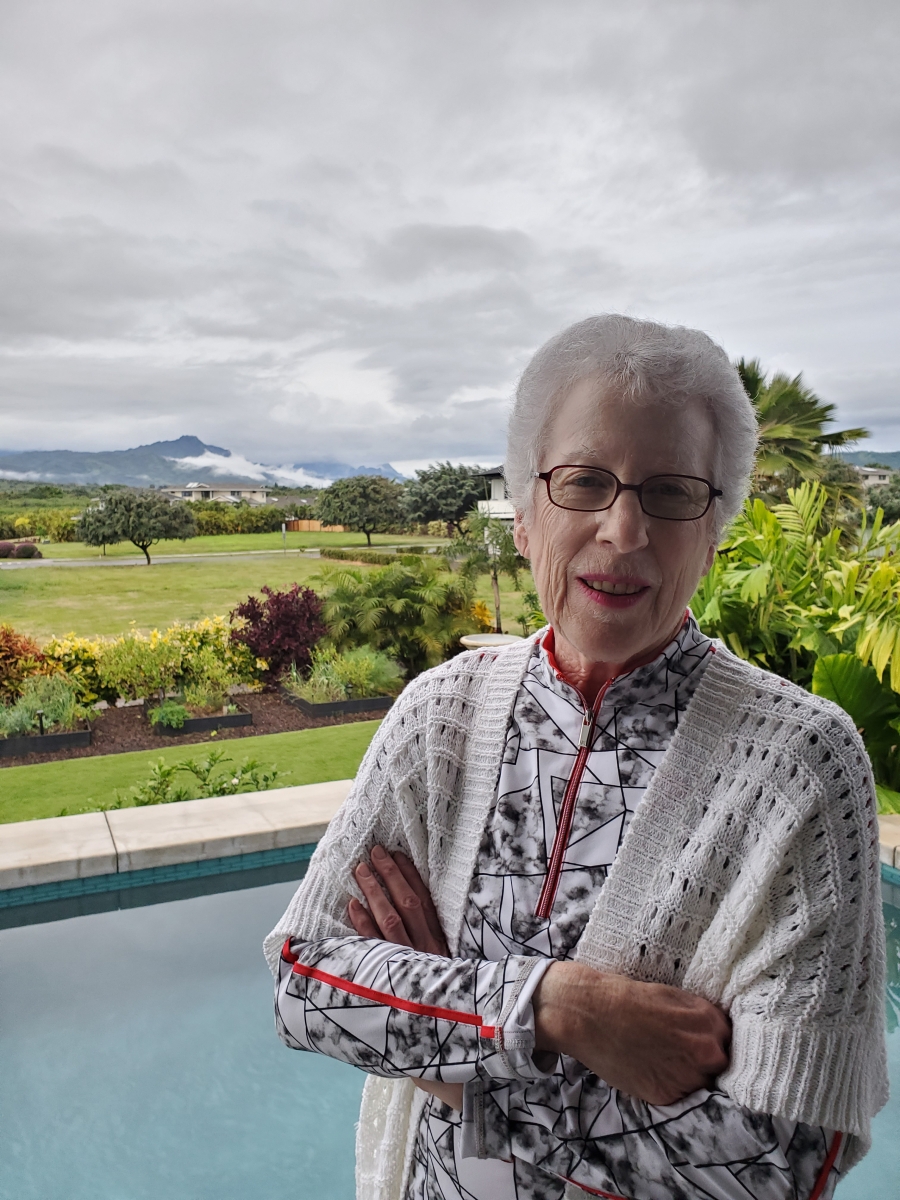Donor Spotlight: Amy Klein
by Brian Magness

Amy Klein on a recent trip to Kauai, Hawai’i. (Photo courtesy of Amy Klein)
Amy Klein, of Menlo Park, California, has always considered herself an educator at heart. She started her career path as a teacher before moving into financial planning, where she built her own successful firm. But even then, she found time to teach a Zoom class on English idioms to the spouses of international grad students at nearby Stanford University.
One day, while listening to a Smithsonian Sidedoor podcast about the decline of global bird populations, she decided to prioritize support for scientific research on habitats and restoring ecosystems.
“I thought the emphasis on bringing more environmental teaching materials to educators was very important, particularly those serving less affluent communities,” Klein said. “I am a fervent believer that we need to begin teaching our children about climate change, so that they can have a solid basis for understanding what is happening in the physical world and what they might do to help bring about positive changes.”
Once she learned about SERC, she began making generous annual gifts in support of our hands-on education programs.
“As a former teacher, I have always felt that getting students physically involved in their learning had a significant impact on their engagement,” she said. “Field trips with hands-on experience can show a whole new world to students who have rarely had such exposure. Moreover, those hands-on experiences can lead to new career directions as well as greater academic aspirations.”
This year, Klein’s gift is supporting a SERC-led program that brings together educators from Smithsonian Affiliate organizations around the country to engage high school students in local climate action projects. As part of the program, the educators attended a workshop at SERC in August. This allows SERC to emphasize the importance of place-based education and local context to audiences from coast to coast.
